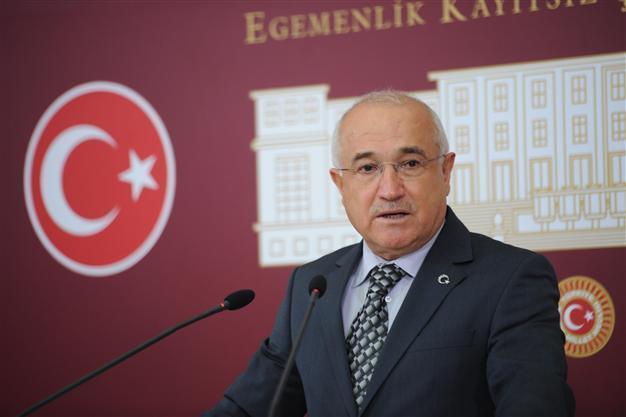Charter panel ‘to work harder’
ANKARA - Hürriyet Daily News

Parliamentary Speaker Cemil Çiçek says the four-party Constitution Conciliation Commission in Parliament will work hard in its limited remaining time.
The four-party Constitution Conciliation Commission in Parliament, tasked with writing a new Constitution, will be working harder in its limited remaining time, Parliamentary Speaker Cemil Çiçek has said.“I’m of the opinion that we will have a good result,” Çiçek told reporters in Ankara yesterday. “There should be more intense efforts, and since yesterday very intense work has been in progress.”
Parliament’s Constitution Conciliation Commission May 7 declared July 1 as the new deadline for the conclusion of its endeavors to make a new charter.
The announcement of the date came amid ongoing controversy over the apparently diminishing chances of writing a new Constitution with the consensus of the four parties represented in Parliament.
According to the new timetable, Çiçek will visit party leaders to collect their opinions and form a new assessment at the end of June.
“I hope that by the end of June we will see the articles agreed on,” Çiçek said. “When there are issues that are beyond the commission and should be decided by the party leaders, of course I will visit them and see how we can proceed.”
Panel debates religious freedom for Alevis, non-Muslims
As Parliament’s Constitution Conciliation Commission debated May 8 the article covering the freedom of religion and conscience, attempts for the constitutional protection of religious freedom of Alevis and non-Muslim minorities living in Turkey failed.
All parties, however, agreed on the first clause of the article on freedom of religion and conscience which was drafted as, “Everybody has the freedom of religion, conscience and faith. This freedom includes the freedom of believing, not believing and changing their faith.”
The Peace and Democracy Party (BDP) brought the issue of Alevis and non-Muslims to the agenda of the meeting.
BDP’s Altan Tan asked for the drafting of a clause which would assure equal religious services for Alevi people, yet met with objections from deputies of the ruling Justice and Development Party (AKP) and the Nationalist Movement Party (MHP).
Declining to voice either a clear objection or approval, deputies of the main opposition Republican People’s Party (CHP) said they would like to “think about the issue for a while.”
Alevism is widely perceived as a liberal sect of Islam, although many characterize it as a belief system separate from Islam. Alevis, who are described as followers of the Caliph Ali, the nephew and son-in-law of the Prophet Muhammad, conduct religious practices distinct from Turkey’s Sunni majority.
Tan also asked for the creation of a constitutional assurance for religious freedom of non-Muslim minorities. MHP deputies objected to this proposal too, arguing that the 1923 Treaty of Lausanne had already granted religious freedom to non-Muslim minorities and they had been practicing their religion freely since.
Overwhelmingly a Muslim country, Turkey is also home to a number of Christians and Jews, who both have places of worship throughout the country. Registered as official minorities according to the Lausanne Treaty, these groups have rights in education and religion yet often feel their rights are not granted. Turkey is frequently criticized by the European Union and the United States for restricting the religious freedom of non-Muslim groups.
“The state is liable for providing a fair share in the use of public resources for religious services and affirmative action clauses are applied in favor of different faith groups who are in an inconvenient situation,” the rejected clause proposed by the BDP said.
















